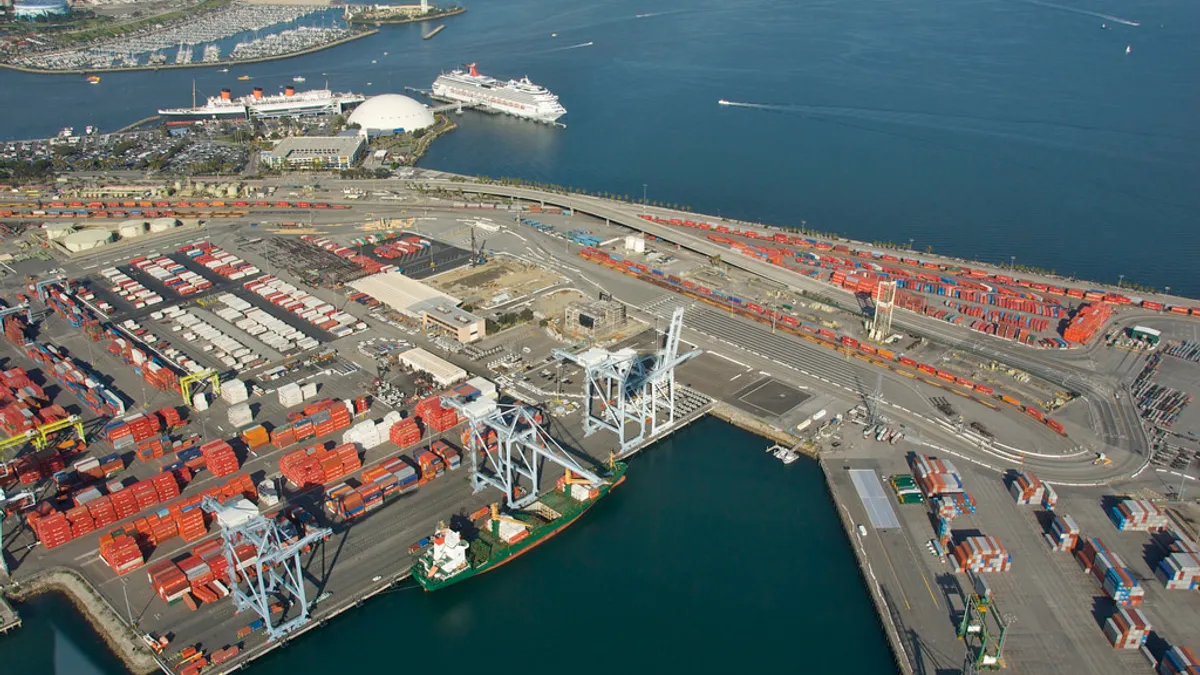Dive Brief:
- The Pacific Maritime Association last week offered the International Longshore and Warehouse Union (ILWU) a three year contract extension, more than two years ahead of the July 1, 2019 expiration of its current terms, the Los Angeles Times reported.
- The extension offers increases in pay, greater contributions to ILWU pensions, and no changes to workers' health insurance policy. JOC.com reports the new contract does not touch upon controversial issues, such as jurisdiction, which could delay negotiations.
- Rank and file must still vote to approve the contract, as is the ILWU's custom. The union and ports association have been in informal talks to extend the contract for over a year now.
Dive Insight:
Ports and longshoremen have long had a complex relationship, but recently frayed relations have entered the spotlight as a cause of national economic risk. A few years back, failed contract negotiations led to a 10-day port shutdown, costing the U.S. $1.9 billion per day of disruption.
Since that incident, shippers have urged ports and longshoremen to sign a contract extension early, to avoid another crisis. Although the current contract does not expire until 2019, the PMA and ILWU returned to the table in November 2016, to seemingly mixed results. However mixed, though, progress appears to have been made as a non-controversial contract was offered six months later.
Of course, shippers should not count their chickens before they hatch as union rank and file must still approve the contract. While most often union membership falls in behind their leadership, recent events show grassroots members can independently spark a crisis.
In February, an East Coast dockworker (represented by the International Longshoremen's Association) called for a general strike and march on Washington to bring labor concerns before Congress. For over a week, it remained unclear whether the strike was sanctioned by the union, so shippers became wary and wrote to Congress to avoid such action altogether. Ultimately, union leadership intervened to halt the strike, but the underlying issues over automation and regulation were not resolved and will likely come to the fore in the East Coast workers' association's talks with the United States Maritime Alliance.
It seems likely West Coast longshoremen will accept an extension, but if not, at least stakeholders' intention to reach an agreement far before the current contract expires is clear and encouraging.












